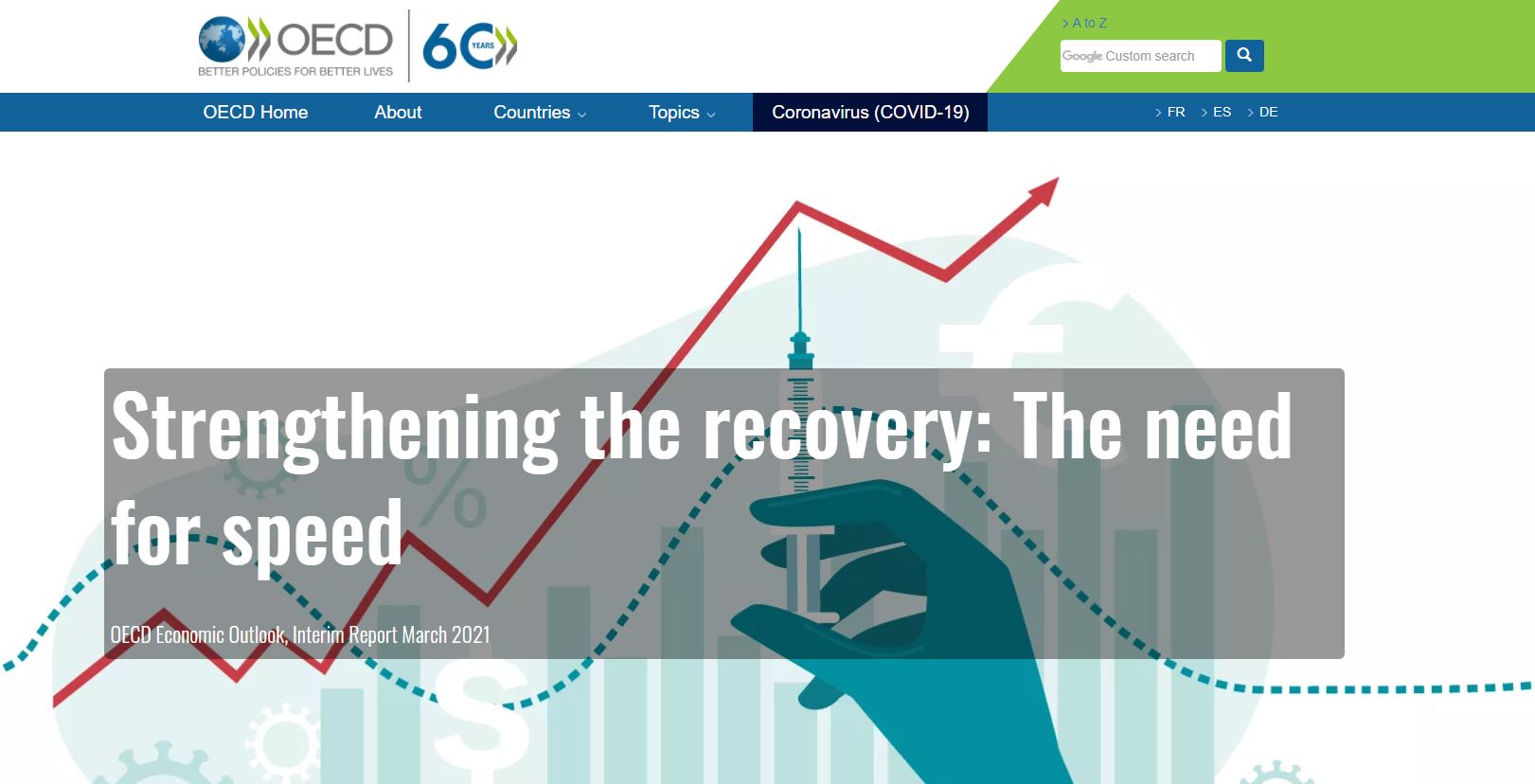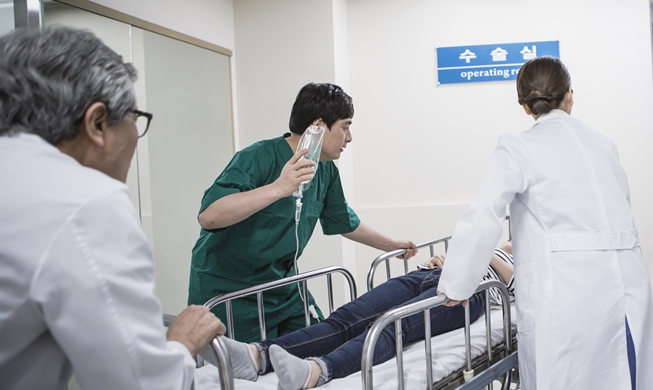
The OECD has revised its growth outlook for the Korean economy this year to 3.3%, up from the 2.8% it made in December last year. (Screenshot from OECD website)
The Organisation for Economic Co-operation and Development (OECD) has revised its growth outlook for the Korean economy this year to 3.3%, up from its estimate of 2.8% made in December last year.
The OECD on March 9 published its Economic Outlook Interim Report containing growth forecasts for the Group of Twenty (G20) economies for this year and next year.
The report predicted 3.3% growth for Korea this year and 3.1% next year.
The Korean government has predicted growth of 3.2% this year, the International Monetary Fund 3.1%, the Bank of Korea 3.0% and the Korea Development Institute 3.1%.
The Ministry of Economy and Finance said the revised growth outlook was likely based on factors such as the recovering global economy, improvements in exports and manufacturing, and Seoul's effective fiscal policy.
The OECD revised up its growth forecast for the world economy to 5.6% from 4.2% in December.
Its estimate for the U.S. was also revised from 3.2% to 6.5%, that of Japan from 2.3% to 2.7% and that of the G20 from 4.7% to 6.2%. The outlook for China was lowered from 8.0% to 7.8%.
"Global economic prospects have improved markedly in recent months, helped by the gradual deployment of effective vaccines, announcements of additional fiscal support in some countries, and signs that economies are coping better with measures to suppress the virus," the report said.
The OECD also said "the significant fiscal stimulus in the U.S., along with faster vaccination, could boost U.S. GDP growth by over 3 percentage points this year, with welcome demand spillovers in key trading partners."
It warned, however, that "there are increasing signs of divergence across countries and sectors," meaning that "despite the improved global outlook, output and incomes in many countries will remain below the level expected prior to the pandemic at the end of 2022."
"Fiscal policy support should be contingent on the state of the economy and the pace of
vaccinations, with new policy measures implemented promptly and fully if required. A premature tightening of fiscal policy must be avoided."
hlee10@korea.kr
Most popular
- 2 Egyptian sisters reflect on 10 years as Honorary Reporters
- Korea Welcome Week for foreign tourists set from April 25-May 16
- Korea.net welcomes 2025 K-influencers, Honorary Reporters
- Actor Bae Doona's first romcom in decade to hit theaters in May
- 2025 Honorary Reporter class pledges to spread 'real Korea' worldwide
